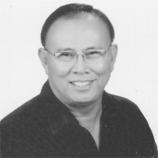 WE WOULD like to apologize to our readers for missing this page yesterday. We had to attend to more urgent things related to family affairs. So we gave it preferential attention. But we’re back again today hoping we have common issues in mind to deal on.
WE WOULD like to apologize to our readers for missing this page yesterday. We had to attend to more urgent things related to family affairs. So we gave it preferential attention. But we’re back again today hoping we have common issues in mind to deal on.
******************
Last Monday we heard President Rodrigo Duterte’s last State of the Nation Address or SONA. For some serious observers of the administration’s conduct during the last five years, they know where the President was well-knowledgeable of the situation and where he could be blindsided by his people in the real status of his governance insofar as those particular relevant issues were concerned.
While with all honesty he admitted his failure to totally erase the drug problem in the country and that his limited success was caused by some high-ranking officials in the law enforcement units who apparently sabotaged his drive, the President devoted much of his SONA still in the illegal drugs problem as if he was just starting his term.
For many, his admission would have added more weight to his humility had he stopped right there and wished his successor to learn from his experience in coming up with a better strategy.
So does his admission that corruption still persists during his administration despite his efforts to curb it. Many observers were expecting that he would stop when he mentioned that it is most difficult to deal with a problem like corruption because this is already long over-laid in the system.
Again his honesty in admitting his failure to stop corruption was cast with some shadow of doubt when he went on to recommend to his successor to declare martial law and overturn the entire system for him or her to do away with the present government functionaries and hand them over to the new generation of leaders.
Indeed, many of these silent but keen observers could be thinking that if indeed the President had that idea of a solution of those specific ills in mind, why did he not do it himself? Why ask his successor to do it? After all, he has been in office for the last five years.
Yes, if the President, as he said, is not afraid to do even the unpopular if it is for the benefit of the greater majority, why would he instead recommend the solution to be undertaken by his successor?
We are however, one of the many Filipinos who are with the President in his more calculated and tactical approach in dealing with the West Philippine Sea problem. He is definitely correct in not being aggressive in having a supposed award granted by the Permanent Court of Arbitration that defines our territorial boundary with China. After all, China did not even agree and participate in the arbitral hearing. And the arbitral court does not even have the mandate to enforce its resolution.
In other words, just like many other Filipinos and perhaps several other countries, except the US, Great Britain, Japan, Australia and some members of the European Union, many silently support the President’s stand that negotiation is the better option. And this could possibly be the reason that as claimed by the Opposition and other pro-aggressive enforcement of the award, the confrontation of Filipino and Chinese Coast Guard ships in the disputed waters of the West Philippine Sea recently, did not result in war. Clearly so because the Philippines and the Chinese governments are talking.
*************
Yesterday, the local media reported that several Overseas Filipino Workers were repatriated from the countries where they had been working for some time. They arrived in Davao City and after conducting arrival swabbing on the repatriates, some of them were tested positive of the dreaded virus – CoViD.
It was also reported in the news that the Health authorities as well as the local government of Davao City are now launching massive contact tracing to make sure that those who have direct or indirect contact with the OFWs will be accounted for and checked on the possibility of their infection.
How come? Were they not swabbed before their flight to Davao City? What happened to the so-called protocol for returning OFWs, are they forgotten?
Good thing we have in Davao City a very functional arrival testing facility that at least prevents the immediate departure from the airport of any arriving person from other places. At least the first line of defense against the virus is well in place. The problem now is where and how to monitor those who have already gone to their respective final destination as most of the arrivals were probably not from Davao City proper. They could be residents in the provinces within the region.
This will be our opportunity to know how effective the current contact tracing methodology used in Davao City is.
